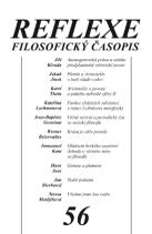Publication etics
Reflexe
Publication Ethics and Publication Malpractice Statement
(based on Elsevier recommendations and COPE’s Best Practice Guidelines for Journal Editors)
Ethical guidelines for journal publication
Our journal is committed to ensuring ethics in publication and quality of articles. Conformance to standards of ethical behavior is therefore expected of all parties involved: Authors, Reviewers, Editors, and the Publisher.
By submitting a manuscript to Reflexe, the author(s) warrant that the manuscript is their own, original work and that it has neither been published previously nor is currently being considered for publication elsewhere. They also warrant that the sources of any ideas and/or words in the manuscript that are not their own have been properly attributed through appropriate citations and/or quotes. Submitting the same manuscript to more than one journal concurrently constitutes unethical publishing behaviour and is unacceptable. Fraudulent or knowingly inaccurate statements constitute unethical behavior and are unacceptable. Plagiarism in all its forms (from ‘passing off’ another’s paper to copying or paraphrasing substantial parts of another’s paper without attribution) constitutes unethical publishing behavior and is unacceptable. Authorship should be limited to those who have made a significant contribution to the conception, design, execution, or interpretation of the study. The corresponding author should ensure that there is a full consensus of all co-authors in approving the final version of the paper and its submission for publication.
Reviewers: Peer review assists the editor in making editorial decisions and through the editorial communications with the author may also assist the author in improving the paper. Reviewers perform work for the journal on a volunteer basis and are free to decline invitations to review particular manuscripts at their discretion, for example, if their current employment workload and/or other commitments make it prohibitive for them to complete a review in a timely fashion. They should also not accept manuscript review assignments for which they feel unqualified or in which they feel conflicts of interest resulting from competitive, collaborative, or other relationships or connections with any of the authors or institutions connected to the papers. Reviewers who have accepted manuscript assignments are normally expected to submit their reviews within four weeks. Any manuscripts received for review must be treated as confidential documents. Reviews should be conducted impartially, and observations should be formulated clearly with supporting arguments, providing detailed and constructive feedback to assist the authors in improving their work. Reviewers should identify relevant published work that has not been cited by the authors. Any statement that an observation, derivation, or argument had been previously reported should be accompanied by the relevant citation. A reviewer should also call to the editor’s attention any substantial similarity or overlap between the manuscript under consideration and any other published paper of which they have personal knowledge.
Editors: Editors are responsible for deciding which of the articles submitted to the journal should be published and they may confer with journal’s editorial board or reviewers in making this decision. Editors may be guided by the policies of the publisher and constrained by such legal requirements as shall then be in force regarding libel, copyright infringement and plagiarism. They should evaluate manuscripts exclusively on the basis of their intellectual content and academic merit. Editors should take reasonable responsive measures when ethical complaints have been presented concerning a submitted manuscript or published paper. They must not disclose any information about a submitted manuscript to anyone other than the corresponding author, reviewers, potential reviewers, other editorial advisers, and in some instances the editorial board members and the publisher, as appropriate. Additionally, the editors will make every effort to ensure the integrity of the blind review process by not revealing the identity of the author(s) of a manuscript to the reviewers of that manuscript, and vice versa.
